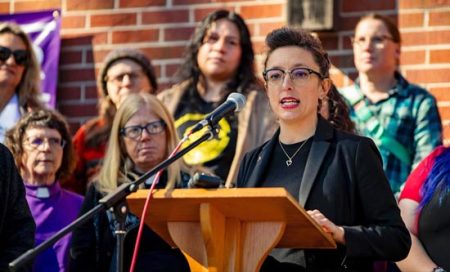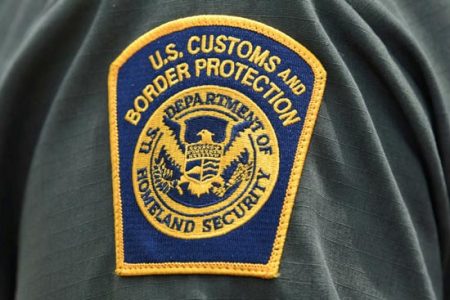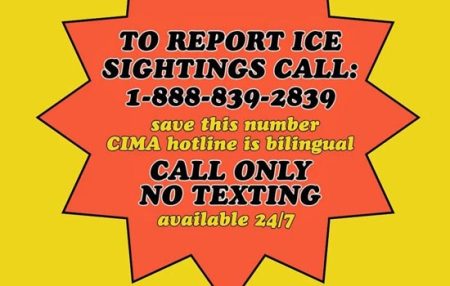Celebrate: The Bill of Rights
 |
The Declaration of
But only in 1791, when the Constitution was ratified and our first president was chosen, did the founding fathers specify what shape our liberty would take. The founders didn\’t want a king or any other single man to hold the power of a tyrant, so the “government” is envisioned as the Congress. Moreover, the Founders didn\’t even trust future congresses; they refused to ratify the Constitution until the Bill of Rights spelled out specific restrictions to be placed on the Federal and State governments.
So, while the Declaration proclaimed our liberty as a nation, the Constitution — specifically the ten amendments that make up the Bill of Rights — details the liberties of its people, mostly by describing what the government cannot do. Except for the Sixth, every amendment in the Bill of Rights limits the government\’s role using the words “no,” “not”, or “shall not.”
Ironically, here in the birthplace of liberty, where all power derives from “We, the People,” most people are sadly uninformed about what their freedoms mean. Many immigrant citizens know more about their government and their rights than native-born college graduates. So we thought we\’d celebrate snubbing our nose at King George with a little refresher course.
The First Amendment
The government cannot limit religious freedom. Nobody can tell an American citizen what to believe. You can worship where, when, and how you please, change congregations, or choose to stay home on Sunday morning, as you see fit.
The government cannot restrict the freedom of the press. Nobody can tell this newspaper what news to print or not print, what opinions to publish, what photos to include or exclude. Again, there might be consequences, but prior restraint is absolutely prohibited.
The government cannot keep people from getting together and demanding change. People can assemble, demonstrate, be activists, insist on justice or any other “redress of grievances,” and as long as they do so peacefully nobody can stop them. That\’s what Dr. Martin Luther King\’s civil disobedience movement was all about.
The Second Amendment
The Third Amendment
Private property can\’t be taken for military use, even in time of war, without passing and observing specific laws.
The government cannot deny you the right to a trial by jury or deny you the right to reasonable bail, impose “excessive” fines, or inflict cruel or unusual punishment. While those terms are subject to all sorts of interpretation by the courts — what does “excessive” or “cruel and unusual” mean? — the underlying rights are absolute.
The Ninth Amendment
To some people, the final two Amendments of the Bill of Rights are the heart of the Constitution\’s guarantees of liberty. The Ninth states that “The enumeration in the Constitution, of certain rights, shall not be construed to deny or disparage others retained by the people.” In other words, just because a particular right, like the right to privacy, isn\’t listed, it doesn\’t cease to exist. The Ninth Amendment asserts that rights belong to individual citizens, not governments. That blanket protection means that, in effect, we all have the right to be left alone and, in the words of the Declaration of Independence, to “life, liberty, and the pursuit of happiness.”
The Tenth Amendment
But the Tenth Amendment gives the “powers not delegated to the
The Bill of Rights as a whole
What do you do if a popular teacher isn\’t teaching your child what he needs to learn? Everybody likes her, she\’s your pastor\’s sister, she gets inolved in community events, but she just can\’t teach. Do you speak out? Do you talk to the principal or the school board about her? Or do you tell yourself that your child will be out of her class in another few months, and after all, she\’s popular and well-liked, so . . . don\’t say anything.
What if you do speak out? You might be ostracized, disliked, snubbed by friends and shunned by strangers. But if your child\’s future depends on his learning what she\’s not teaching, what choice do you have?
The same repercussions can hold for writing a story in a newspaper, or challenging a political office-holder, or organizing a march to demand more affordable housing. But the alternative — keeping quiet in the face of injustice — can lead to something far worse: the loss of the freedom to speak out or keep quiet as you choose.
Freedom is messy. But our freedom, and all your freedoms and rights and liberties, depend on your knowing what they are and exercising them when it\’s imporant to do so. The rights you hold, and the responsibility to live up to them, give meaning to the sacrifices the Founding Fathers made on our behalf. They are what freedom is all about.

Amendment I
Congress shall make no law respecting an establishment of religion, or prohibiting the free exercise thereof; or abridging the freedom of speech, or of the press; or the right of the people peaceably to assemble, and to petition the Government for a redress of grievances.
Amendment II
A well regulated Militia, being necessary to the security of a
Amendment III
No Soldier shall, in time of peace be quartered in any house, without the consent of the Owner, nor in time of war, but in a manner to be prescribed by law.
Amendment IV
The right of the people to be secure in their persons, houses, papers, and effects, against unreasonable searches and seizures, shall not be violated, and no Warrants shall issue, but upon probable cause, supported by Oath or affirmation, and particularly describing the place to be searched, and the persons or things to be seized.
Amendment V
No person shall be held to answer for a capital, or otherwise infamous crime, unless on a presentment or indictment of a Grand Jury, except in cases arising in the land or naval forces, or in the Militia, when in actual service in time of War or public danger; nor shall any person be subject for the same offense to be twice put in jeopardy of life or limb; nor shall be compelled in any criminal case to be a witness against himself, nor be deprived of life, liberty, or property, without due process of law; nor shall private property be taken for public use, without just compensation.
Amendment VI
In all criminal prosecutions, the accused shall enjoy the right to a speedy and public trial, by an impartial jury of the State and district wherein the crime shall have been committed, which district shall have been previously ascertained by law, and to be informed of the nature and cause of the accusation; to be confronted with the witnesses against him; to have compulsory process for obtaining witnesses in his favor, and to have the Assistance of Counsel for his defence.
Amendment VII
In Suits at common law, where the value in controversy shall exceed twenty dollars, the right of trial by jury shall be preserved, and no fact tried by a jury, shall be otherwise re-examined in any Court of the
Amendment VIII
Excessive bail shall not be required, nor excessive fines imposed, nor cruel and unusual punishments inflicted.
Amendment IX
The enumeration in the Constitution, of certain rights, shall not be construed to deny or disparage others retained by the people.
Amendment X
The powers not delegated to the





